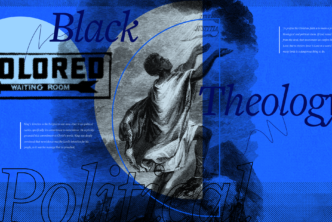Scott R. Swain joined the faculty at Reformed Theological Seminary in 2006, where he serves as associate professor of systematic theology, as well as Academic Dean. He is also an ordained minister in the PCA. In the spirit of semper reformanda, he seeks to bring the methodologies of past biblical interpretation to bear in a modern context, to better grow the church in its understanding and service of God.
I first encountered his book Trinity, Revelation, and Reading: A Theological Introduction to the Bible and Its Interpretation as part of a systematic theology course in seminary. I was immediately struck by the unique yet classical approach to the topic of biblical interpretation, and I devoured the book much quicker than was required. I found that it reinvigorated my hunger for Scripture and taught me to view it a new light. Or perhaps it would be more accurate to say that it lent color to an understanding I already had. I trust it will do the same for many readers.
I am pleased to say that Logos is producing Trinity, Revelation, and Reading as part of the 4-volume T&T Clark Studies in Biblical Theology and Theological Interpretation collection, which is now available in Logos Bible Software. Dr. Swain recently joined us for an interview regarding the book.
Who was this book written for, and what led you to write it from this Trinitarian angle?
I wrote Trinity, Revelation, and Reading for students just beginning the course of their theological studies. The book was initially drafted as part of a larger traditional hermeneutics textbook, but it eventually took on a life of its own. As I understand it, to treat a topic “theologically” is to treat it “in relation to God.” Since God is the Trinity, we can’t treat any topic theologically without treating it in relation to the triune God.
Why does the title emphasize reading rather than interpretation?
I have no principled objection to the term interpretation, and in fact I use it throughout my book. If anything, my choice of terminology probably reflects the influence of John Webster. John argues that much modern hermeneutics and interpretation theory has become a bit overinflated. Because it is a more modest term, reading allows us to put our focus where it needs to be: not on interpretive theory per se, but on the nature of Scripture and on the ways God communicates to us through its reading.
Reading is particularly important to the Christian for one simple reason: if God speaks to us in Scripture, then we listen to God by reading.
You state in the introduction that this book is a nod back to “an older confessional dogmatics.” Which writers have most influenced the thinking presented here?
The biggest influence is certainly Augustine’s On Christian Doctrine. Though Augustine only receives a few footnotes here and there in my book, it is his vision that inspires much of my approach. I’m also indebted to the Reformed tradition of the sixteenth and seventeenth centuries, which develops a number of Augustinian hermeneutical themes in a Protestant key. I owe a lot to the Geerhardus Vos and Herman Ridderbos line of redemptive-historical hermeneutics as well. Chapter two in particular is unimaginable apart from Ridderbos. In terms of contemporary folks, Kevin Vanhoozer and John Webster deserve pride of place.
What do covenant and communication have in common, and how is your covenantal reading of Scripture important to this book?
Covenant is about communication in at least two senses. First, through the covenant God “communicates” (i.e., “makes common”) a number of goods to us: the blessings of salvation, our eternal inheritance, and preeminently himself. Second, the covenant is an act of verbal communication: God makes covenants by taking oaths, making promises, and issuing commands. Covenant is thus communicative through and through.
Covenant is important to the reading of Scripture in at least three ways. First, Scripture is a book about the various covenants that God makes with human beings. Thus, to miss out on the biblical theme of covenant is to miss out on a major biblical theme. Second, Scripture functions as a covenant book for the church. Thus, if we want to engage Scripture for what it is, we must engage it in a covenantal manner. Third, because God “communicates” (i.e., “makes common”) himself and his other covenantal blessings through verbal communication, Scripture is the primary means of grace for the church. To engage Scripture is to engage the God of the covenant in covenant.
Can you discuss progressive revelation and how that concept relates to the Bible?
Progressive revelation refers to the fact that God makes both his character and his plan of salvation known to us through time, gradually shining more and more light on us. As Vos says, God does not reveal himself all at once. Instead, the divine pedagogy takes a developmental approach in healing us of our folly and bringing us to the beatific vision.
Scripture is a witness to the developmental, progressive nature of the divine pedagogy.
We see this not only in the fundamental division of the Bible into Old and New Testaments—the former inscribing God’s revelation to his people before Christ and the latter after Christ—but also across various covenant epochs of revelation: from the Abrahamic, to the Mosaic, to the Davidic, to the new covenants. The existence of the Bible is itself a witness to the progressive nature of revelation. One day God will not speak to us through a book; he will speak to us face to face, and this consummate act of revelation will bring about our consummate happiness. The Bible gives us a lot, but it also awakens in us a hope for something more.
Trinity, Revelation, and Reading often reads like a volume of systematic theology, yet it is firmly built on a biblical-theological foundation. How do you view the relationship between systematic theology and biblical theology?
What God has joined together, let no one separate! Historically, what we call “biblical theology” and “systematic theology” were aspects of one integrated theological enterprise. When you read, for example, a Herman Witsius or a John Owen, it is impossible to categorize what they’re doing according to modern disciplinary divisions. Under the influence of rational biblical criticism (e.g., Gabler), biblical theology and systematic theology were separated into distinct disciplines—to the theological impoverishment of biblical theology and the biblical impoverishment of systematic theology.
In chapter three you deal with the truthfulness and perfection of Scripture. Inerrancy is something of a polarizing word today—a dividing line between theological camps. How do you understand the doctrine of inerrancy, and how do you advise others to navigate this minefield of a topic?
I am quite happy with the way inerrancy has been described and defended by the likes of B. B. Warfield and more recently by J. I. Packer, Kevin Vanhoozer, and Timothy Ward.
It is indeed unfortunate when theological terms become the source of polarization. In theology, it is the substance not the terminology that matters most. That said, I worry that in some cases we are dealing with more than merely terminological quibbles. Important issues are at stake here: supremely, the nature of the God who cannot lie and the status of Holy Scripture as his inspired Word.
How should we navigate this “minefield”? Fundamentally, we should give calm and prayerful consideration to Scripture’s self-attestation on this topic. As Warfield observed long ago, we too quickly rush to debates about whether the “phenomena” of Scripture are consistent with inerrancy before considering Scripture’s own claims about itself. If Scripture is indeed God’s true and trustworthy Word to us, then we may expect the Spirit to seal its claim to be such upon our hearts. With this confidence in place, we can then consider the very real issues that confront us in the phenomena of Scripture, but we can do so from a perspective of humility before God and with a healthy dose of self-doubt given our finitude and sin. We can also proceed with the expectation that there are still many opportunities for growth in understanding the wonderfully complex coherence of God’s holy Word. Faith (but only faith) may seek and expect to find understanding.
We are grateful to Scott Swain for chatting with us about this book, and pleased to bring it to your attention. Trinity, Revelation, and Reading is thorough, helpful, and highly recommended. See what others are saying:
Clear and persuasive in argument, deeply read in classical and modern divinity, doctrinally and spiritually astute, this is a splendid theological presentation of the nature and interpretation of Scripture.
—John Webster, professor of systematic theology, University of Aberdeen, Scotland
. . . a three-stranded cord for the theological interpretation of Scripture that is not easily bettered.
—Kevin J. Vanhoozer, research professor of systematic theology at Trinity Evangelical Divinity School in Deerfield, Illinois
Trinity, Revelation, and Reading is one of four volume in the T&T Clark Studies in Biblical Theology and Theological Interpretation collection. This collection includes contributions from Kelly M. Kapic, Michael Horton, R. Michael Allen, D. A. Carson, and more. Add these volumes to your library for only $74.95, or put it on a payment plan for $19.95 per month. Learn more about this collection from T&T Clark.
Are you a student, staff, or faculty at an academic institution? You can save even more! Join the Academic Discount Program for deep discounts on this and many other academic works available on Logos.com.




